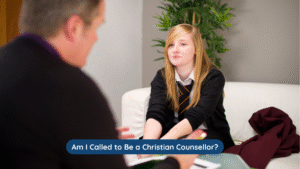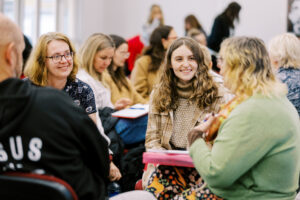Anxiety can be extremely debilitating and difficult to live with if left untreated. Those who live with anxiety can learn to manage it with the help of a mental health professional. It takes courage to seek treatment and its much harder to live with anxiety than to go through therapy because anxiety affects relationships, performance and our ability to enjoy life and live it to its fullest. Psychologist, speaker and best selling author Harriet Lerner Ph.D. writes about the debilitating effects of anxiety in her article titled “The top 9 Reasons Why I Hate Anxiety’ as published in Psychology Today.
The Top 9 Reasons Why I Hate Anxiety
How nice it would be to always see anxiety as a solicitous friend—a natural survival mechanism that warns us to keep the door shut when the wolf is waiting outside, or priming us to fight, flee, or freeze when the wolf has found his way in.
But we live in modern times. More often than not, we’re not facing a wolf-like threat. Most stresses we face today require us to slow down, limber up our brain and do our best problem solving. On this front, anxiety doesn’t help us one bit.
I’ve been studying the effects of anxiety on human functioning for several decades. Here are my top nine reasons why I hate anxiety. Perhaps you can add to my list.
1. Anxiety feels dreadful. When anxiety has you in its clutches, you will want to move out of your body and inhabit some other space—anything to escape that awful feeling. Regrettably, there is no place to go. You can’t vacate the premises.
2. Anxiety mucks up your thinking. When you’re too anxious you won’t be able to gather new information, think clearly about the problem, explore your options, and give calm and clear feedback to others. Anxiety floods your system with adrenalin and hi-jacks your neo-cortex—the thinking part of the brain.
3. Anxiety leads to a steep decline in civility and cooperation. Anxiety leads people and groups to get polarized and unable to find creative solutions that consider the needs of all.
4. Anxiety tricks you out of the “now” as you obsessively replay and regret the past and worry about the future. Anxiety loves to wake you up at 3:00 in the morning, so you can nurse past grievances and worry about future catastrophes.
5. Anxiety feeds your negativity. Anxiety will dig a big negative groove in your brain and make it impossible for you to hang on to a positive thought for more than five seconds.
6. Anxiety revs up judgementalness and criticism. This can be directed toward the self, or toward others, or both.
7. Anxiety devastates your self-esteem. Anxiety tricks you into losing sight of your competence and your capacity for love, creativity and joy. It tricks you into believing that you are lesser and smaller than you really are. Anxiety interferes with self-regard and self-respect, the foundation on which all else rests.
8. Anxiety destroys your capacity to tolerate ambiguity and complexity. Anxiety will block you from seeing two sides of an issue, much less six or seven sides. You’ll also lose sight of the many-sidedness of your own self. Anxiety will lock you into a very narrow view of who you are.
9. Anxiety keeps you stuck in downward spiralling relationships. Anxiety fuels circular dances in your most important relationships, for example, the distancer and the pursuer, (link is external) the overfunctioner and the underfunctioner. (link is external) Anxiety drives triangles (link is external), creates insiders and outsiders, and keeps good people yo-yo-ing back and forth between distance and blame.
When we’re feeling anxious, we have a good chance of identifying anxiety as the culprit behind our poor mental functioning. In these situations, we can usually forgive ourselves for our temporary brain-lock and move on. But anxiety also operates as a chronic, underground force. We may not feel anxious, so we fail to identify anxiety as the culprit behind our poor functioning. We just feel badly about ourselves and our relationships.
If anxiety gets the better of you, you’ll mistakenly see yourself as a weak and impaired individual, rather than as a strong, competent person who happens to have an overactive fear response.
Take a look at The Dance of Fear (link is external)and other books that will help you to become an expert on anxiety’s mischief. As long as we are alive, anxiety will always be with us. The more you know about this mean trickster, the more you can move into the future with courage, clarity, humour and hope.
Further Reading on Anxiety
Common Symptoms of Anxiety & The Bizzare
What Is Anxiety Disorder & What Causes It?
Sources:
PERMISSION ATTAINED
Harriet Lerner Ph.D. Author of ‘The Dance of Anger’, ‘The Dance of Deception’,’ The Dance of Intimacy’ and more. Website: http://www.harrietlerner.com/
Psychology Today: The Top 9 Reasons Why I Hate Anxiety
If you suffer from anxiety, see your doctor or seek the help of a professional and registered counsellor.
Search for a Christian counsellor nearest you at www.ccaa.org.au/








Have you thought about becoming a qualified counsellor? It’s a great opportunity to learn how you can extend God's love and grace to the hurting out in the community.
For those who would like to enrol in aifc’s accredited Christian counselling courses we have two intakes per year for courses commencing around the following months:
Enrolment Season - opens approximately 2 months prior to our courses commencing. Enrol online here during our enrolment season.
We also offer two modes of study:
A Master of Counselling course was introduced in 2018.